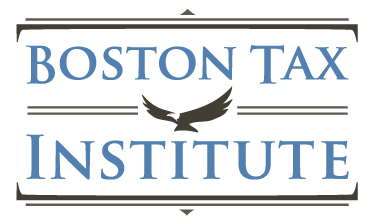In covering Erickson v Comm TCM 2022-92, I reached out to Peter Hendrickson, whose own case was mentioned in the opinion. Mr. Hendrickson is the author of Cracking The Code – The Fascinating Truth About Taxation In America (CtC). He also runs the Lost Horizons website dedicated to the topic. Judge Ronald Buch of the Tax Court did an analysis of Cracking The Code in his opinion in Waltner v Comm TCM 2014-35.
I have corresponded a bit with Mr. Hendrickson and he remains perturbed at my inability to comprehend his theory on the extremely limited nature of the income tax. In his view most private sector income is not the subject to the income. His strongest evidence for this is the many refunds that he documents on the Lost Horizons website. At any rate his response to my query about Erickson was longer than I could include in my post on the subject, so I am reproducing it in full here.
I wrote to him:
Thinking about covering this one any comment?
Petitioner’s “zero returns” were based on his assertions that wages are not income and that the Federal Government has no authority to tax private sector income. Similar statements often accompany “zero returns” filed by tax protesters. See, e.g., Smith v. Commissioner, T.C. Memo. 2021-29, 121 T.C.M. (CCH) 1195, 1197; Hendrickson v. Commissioner, T.C. Memo. 2019-10, 117 T.C.M. (CCH) 1041, 1043, aff’d per order, 2020 WL 2563412 (6th Cir. 2020). The Secretary has identified these arguments as “frivolous positions.” Notice 2010-33, 2010-17 I.R.B. at 609. And the courts have repeatedly done the same. See, e.g., Walker ] v. Commissioner, T.C. Memo. 2022-63; Briggs v. Commissioner, T.C. Memo. 2016-86; Lovely v. Commissioner, T.C. Memo. 2015-135, aff’d per curiam, 642 F. App’x 268 (4th Cir. 2016).5 In sum, respondent has carried his burden of establishing that all 14 of petitioner’s submissions satisfy the three conditions specified in section 6702(a) for a “frivolous tax return.” Petitioner is therefore liable for a $5,000 penalty for each Form 1040 that he filed.
Mr. Hendrickson responded:
If what is said here is an accurate (and complete) recital of the litigant’s position (and he/she really filed so-called “zero returns”– a description of Schiff returns*) then the ruling might be sound. “Wages” as defined in tax law most certainly ARE “income” (that is, tax-relevant income) and the federal government certainly does have the authority to tax private sector tax-relevant income.
The issue is that not all pay to all workers is of “wages” as that term is defined in the law (see https://losthorizons.com/Documents/BriefAndBright.pdf) and therefore is not tax-relevant income, and not all gainful private sector activities are the taxable kind (see https://losthorizons.com/TheNatureOfTheTax.pdf). Unfortunately, a lot of folks have been misled by decades of “tax-honesty” writings by various people into themselves misunderstanding (or being unaware of) these distinctions.
Worse, even if a litigant DOES understand, and points out these distinctions, tax court judges are notorious for “misunderstanding” (and subsequently misrepresenting) them, in a classic model of Upton Sinclair’s observation that “it is difficult to get a man to understand something when his salary depends on him not understanding it”, despite this being pretty plainly in defiance of the provisions of 26 USC 6201(d) and 7491(a) (see https://www.losthorizons.com/tax/Misunderstandings/IRsNeverSufficient.pdf).
In summary, then, the litigant in this case MAY have actually based his/her filing and case on several nonsensical arguments, making themselves a deer in the headlights. Or (and more likely, seeing as this is a recent case) this is just an increasingly typical example of rank tax court corruption.
* 4. Zero Return. Promoters instruct taxpayers to enter all zeros on their federal income tax filings. In a twist on this scheme, filers enter zero income, report their withholding and then write “nunc pro tunc”–– Latin for “now for then”––on the return. They often also do this with amended returns in the hope the IRS will disregard the original return in which they reported wages and other income.
No CtC-educated filer simply “enters all zeros” on anything. Certainly, it often happens that -0- is the correct entry here and there in a filing, however much the tax agencies dislike that number on the “income” portions of the forms. But such entries are not made by anyone knowledgeable about the law simply as a matter of policy– they are made as a matter of accuracy, each being individually determined by the proper application of all relevant provisions of law.
The fact is, to the degree that it is not simply an escape hatch from the inappropriateness of the entry in which it is placed, this reference to “Zero Returns” is nothing more than a cheap effort to smear the inconvenient filings which the IRS so desperately wishes to discourage, by suggesting that they are of a kind with returns filed in years past by adherents of various misunderstandings who did indeed fill in 1040s as described above. (The “nunc pro tunc” thing is a new one to me, by the way. I have no idea if what is described in that regard actually typifies any variety of “zero return”; or, if so, why it would be imagined that this procedure would serve any useful purpose.)
For great value continuing professional education. I recommend the Boston Tax Institute

You can register on-line or reach them by phone (561) 268-2269 or email vc@bostontaxinstitute.com. Mention Your Tax Matters Partner if you contact them.
For articles oriented toward tax professionals check out Think Outside The Tax Box.

































































































Peter, you mention the “analysis” of ‘Cracking the Code’ by Ronald Buch in his ruling in Waltner v. Commissioner. That bit of gibberish cried out for some analysis of its own, which will help shed some light on the sort of convenient Tax Court “misunderstandings” to which I refer in my reply to your inquiry. It can be found at https://losthorizons.com/Trolleries/JudicialMyths.htm#Buch.
https://yourtaxmatterspartner.com/wp-admin/profile.php How did Waltner do in other courts?